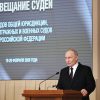The European Medicines Agency has approved the Moderna vaccine, making it the second coronavirus shot to be cleared for general use across the EU, as tensions continued to rise over the slow progress of vaccination programmes in the bloc.
In a move that should ease frustrations over a shortfall in supplies of the Pfizer/BioNTech jab and the EU’s longer authorisation process, the Amsterdam-based regulator said on Wednesday it had granted a conditional marketing authorisation for Moderna’s Covid-19 vaccine for adults.
But Europe is lagging behind the US, Britain and Israel in vaccinations, with the bloc due to hold a virtual summit on the health crisis by the end of the month and the European council president, Charles Michel, describing mass inoculation as a “gigantic challenge”.
The European commission has agreed to buy 160m doses of the US-made vaccine, which has been shown in clinical trials to be 94% effective and should prove easier to deliver since it does not have to be kept as cold as the Pfizer jab.
Separately, Germany said on Wednesday it would not follow the UK by delaying the second dose of the Pfizer jab to ensure more people were protected sooner, with the health minister, Jens Spahn, saying it would be better to observe the manufacturers’ recommendations.
“My impression is it makes a lot of sense, especially with sensitive issues where trust and reliability are important, to stick to the approval,” Spahn said, adding that Germany would also avoid switching between vaccines to speed up vaccination.
The EU began vaccinating on 27 December, but progress has so far been agonisingly slow: the US and UK have already vaccinated 1%-2% of their populations, while Israel is at 16%. Europe’s best performer, Germany, has managed barely 0.4%, while the Netherlands did not start until Wednesday.
Vaccinations globally
Both the commission and national governments have come under heavy fire for the disappointing pace of the bloc’s vaccine rollout, while tensions within the union have also increased, echoing those early in the pandemic over the sharing of medical equipment.
The EU’s executive has pointed out it that has secured more than 2bn doses from six different manufacturers for the bloc’s 450 million inhabitants, saying the problem is not so much that it failed to order enough vaccines, but that manufacturers are being slow to produce them, and countries slow to administer them.
“I don’t think that the issue is really the number of vaccines – it is the fact that we are at the beginning of a rollout,” said the commission spokesman Eric Mamer. “We’re all judging this as if this campaign is over; in fact, it is just starting.”
Mamer also defended the decision to place orders for a basket of different vaccines, some of which are not yet available. “We always knew it would be a complex operation. This is why the commission was so adamant that it was important we sign contracts with different companies,” he said.




















































Свежие комментарии